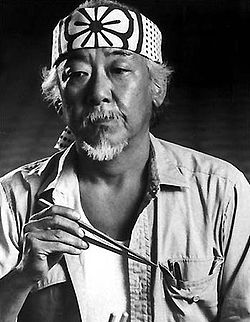
In “Disarmed and Dangerous” we say that living saved is living above rules.
The elementary principles of the world are disarmed and dangerous. Jesus disarmed them by nullifying the law and with it rule-based living. Even though this is so, we must beware of them since we tend to resort to them again.
Episode Notes:
Point: We encounter the elementary principles of the world through rules.
The elementary principles of the world don’t need to be codified to operate, but rules facilitate their reign. Laws define the extent to which authorities can control the actions of the citizens under their purview. Laws facilitate the operation of authority by prescribing governmental power over the citizens. For instance, a person driving over the posted speed limit will have a ready answer for the traffic cop’s, “Do you know why I pulled you over?” Laws governing every detail of this type of interaction reduce the need for force in enforcement. Laws facilitate the operation of authority, but they also limit it. Police officers, judges, representatives, and even the president are all subject to the laws in the United States. We need authority, but it can easily become oppressive, so legal codes attempt to mitigate oppression while retaining the social order.
Rules also streamline the process of conformity. Institutions produce bylaws and policy guides to prescribe acceptable behavior for their participants. POA covenants detail cultural conformity regarding the appearance of individual property within a neighborhood. Employers produce handbooks and work to produce a corporate culture that reflects their brand. I’ve lived most of my life in the shadow of the Walmart home office and I’ve seen firsthand the impact of insisting that everyone in management refers to employees as “associates.” People naturally conform to unspoken norms but when they do get spoken in the form of rules, it helps everyone conform more quickly.
Religions prescribe taboos and rituals for their adherents. These prescriptions can take the form of laws in theocratic societies, or they can be enforced by social censure in more secular ones. The Hebrew scriptures outline civil and cultic requirements in tedious detail. These instructions informed jurisprudence even under a monarchial rule which helped Israel maintain a level of equality and justice for all its people. Ultimate civil authority resided with the Mosaic code. The cultic elements such as in Leviticus produced a vivid cultural salience among Jewish society. The law, as Paul called it, helped the Jews remain a distinct people even through centuries as a dispersed nation.
Rules are so ubiquitous in human society that we might fail to recognize the elementary principles hiding behind them. In our highly litigious and individualistic society, we might come to assume that we obey the law simply because we don’t want to go to jail. Or we might tell ourselves that we obey the policy manual at work just because we don’t want to get fired. Our relationship with rules could make us miss the fact that we obey laws that we could safely ignore or that we buy in to the company line when the boss isn’t around. If Paul is right that rules serve these elementary principles of the world, then the fact that we continually produce rules is proof positive that we live under the sway of invisible social forces.
Point: Christ has nullified rule-based systems, but the basic principles of the world remain disarmed and dangerous.
If rules merely represent the dominion of the elementary principles of the world and yet we’re supposed to be free of them, then we must be free from rules as well. Remember that in Galatians 4:1-3 Paul called the elementary principles of the world a guardian over humankind until the coming of God’s Son. A few verses earlier, he speaks of the Mosaic law as guardian over the nation of Israel “until faith came.” Later in Galatians 4, he warns these Gentile converts that submitting to the law would be a return to subservience to the elementary principles of the world. In chapter 5, he exhorts them to remain in freedom by not submitting to the requirements written in the Old Testament. In other words, rule-keeping is a reversal of the gospel of Christ.
In Colossians, Paul described religious rules as weapons used by the elementary principles of the world to oppress God’s people:
When you were dead in your sins and in the uncircumcision of your flesh, God made you alive with Christ. He forgave us all our sins, having canceled the charge of our legal indebtedness, which stood against us and condemned us; he has taken it away, nailing it to the cross. And having disarmed the powers and authorities, he made a public spectacle of them, triumphing over them by the cross.
(Colossians 2:13-15 NIV)
Since Jesus has “disarmed the powers and authorities,” we mustn’t allow them to influence our actions. As Paul went on to write,
If you have died with Christ to the elementary principles of the world, why, as if you were living in the world, do you submit yourself to decrees, such as, “Do not handle, do not taste, do not touch!” (which all refer to things destined to perish with use)—in accordance with the commandments and teachings of men?
(Colossians 2:20-22 NASB)
Point: We must be free of the guardian to become moral adults.
Freedom from external pressures and enticements is mandatory to the Christian because Christ died to set us free from the elementary principles of the world. But if these basic principles are essentially benign and if laws aim at keeping them that way, what need could there be for such radical freedom? Why would God pay such an awful cost to free us from our guardian?
We can’t stay under the guardian because God wants grown children. Rules can be comfortable. Religious people often swing towards legalism because they’re looking for structure. They want to know what they should do without having to go through the pain of decision-making. In other words, they want to be treated like children. Unfortunately, such people never develop an authentic ethic beyond, “Do what you’re told.” That might work for small children, but it surely shouldn’t characterize God’s full-grown image bearers.
The elementary principles of the world and the rules they wield work to keep humankind from facing the self-destructive consequences of their own defiance. Their proper role is to restrain human wickedness. According to Paul:
We know that the law is good if one uses it properly. We also know that the law is made not for the righteous but for lawbreakers and rebels, the ungodly and sinful, the unholy and irreligious, for those who kill their fathers or mothers, for murderers…
(1 Timothy 1:8-9 NIV)
Laws exist to constrain unrighteous people. The application of laws to righteous people is a misuse. It suggests to them that they would do such things if unconstrained and they come to believe it. They become moral infants afraid of their own character. When they encounter the least bit of freedom, they flee to the familiar folds of their nanny’s apron. There, they are once again absolved of tension to make good decisions. This tendency can affect even people we consider very spiritual.
In Galatians 2 Paul recounts a time he had to rebuke the apostle Peter in front of the whole church.[i] It seems that Peter had been eating with Gentiles in Antioch but shunned them after other Jewish believers arrived from Jerusalem. We’re told that Peter’s hypocrisy was due to fear of this Jewish contingent. I assume it regarded the Jewish practice of avoiding ceremonial defilement which would always be present at Gentile feasts. It seems the defilements might have gone beyond ceremonial, though. Paul seems to suggest that Peter may have compromised his morals in some way at one of these Gentile banquets:
“But if, in seeking to be justified in Christ, we Jews find ourselves also among the sinners, doesn’t that mean that Christ promotes sin? Absolutely not! If I rebuild what I destroyed, then I really would be a lawbreaker.
(Galatians 2:17-18 NIV)
As an observant Palestinian Jew, Peter could rest assured in his personal performance of the law. However, that performance owed greatly to living in an observant society. The real test of Peter’s character would come while surrounded entirely by pagans with their raucous indulgence and casual inter-sex interactions. Did Peter get drunk? Was he acting a bit too familiar with one of the female dinner guests? Whatever he’d done, he felt ashamed enough to cease eating with Gentiles when he came under Jewish scrutiny. Maybe he was afraid to scandalize the name of Christ through his own actions. Paul puts that concern to rest by saying, “Hey, if you messed up, that’s on you.” Then he tells Peter that the real transgression is to build again the law-driven religion which kept Jews and Gentiles apart.
I relay all of this to point out that only those who come out from behind authoritarian religion can discover and develop their true moral core. Children need directives and supervision, but the application of those same controls on adults infantilizes them. Attempts to shelter young adults in the home, youth group, and Christian college retard their moral/spiritual development. In many cases, they come to resent the authority over them and rebel (only to find themselves in the custody of conformity). If they don’t rebel, they will become morally hollow puppets of their church. Such religion produces cowardly conformists. We must be free to become truly conformed to the image of Christ through and through.
Point: Religious rules incubate hypocrisy.
Servants of the basic principles not only lack moral fiber, but they grow an immoral alter ego behind the veneer of compliance. Laws and social norms can only address actions. This brings the focus entirely on behaviors and especially the ones which signal insider status with the group. I’ve seen whole churches of people who would never use an instrument on Sunday morning but who were secretly having affairs even with each other.
Jesus called down this curse on the hypocrites of his day:
“Woe to you, teachers of the law and Pharisees, you hypocrites! You are like whitewashed tombs, which look beautiful on the outside but on the inside are full of the bones of the dead and everything unclean. In the same way, on the outside you appear to people as righteous but on the inside you are full of hypocrisy and wickedness.”
(Matthew 23:27-28 NIV)
I’ve been around long enough to see this illustration as an immutable spiritual law. Wherever you find a shiny behavioral veneer, you can be assured of moral rot hiding just under the surface.
The best that people will become under the elementary principles of the world is outwardly obedient. The worst they’ll become is moral deviants hiding from public scrutiny. We don’t celebrate “yes men,” or conformists. And every kind of hypocrite is universally disdained. We must be free from external control if we are to have any hope of genuine moral development.
Point: Religious rules dilute pure motives.
Maybe you’re thinking of a good legalist you knew. I’d suggest that you probably didn’t really know them, but let’s pretend you did. Even if a rule-driven person comes to obey from the heart, their morality will always be in question. For instance, suppose they remain faithful to their spouse in thought, word, and deed their entire life. Will that faithfulness be due to a genuine love for their spouse or will it be merely enlightened self-interest for fear of divine retribution? Perhaps they could say that it was both, but wouldn’t that dilute the pure love their spouse would prefer to receive?


 presence. Instinctively, I’d flip the switch on the wall, but the light wouldn’t respond. Fear would grip my heart as I vainly repeated my attempts to shed light on whoever or whatever approached me in the darkness. It’s been quite some time since I’ve had that dream, but it still haunts me whenever I read Jesus’ words recorded in Matthew 6:22-23.
presence. Instinctively, I’d flip the switch on the wall, but the light wouldn’t respond. Fear would grip my heart as I vainly repeated my attempts to shed light on whoever or whatever approached me in the darkness. It’s been quite some time since I’ve had that dream, but it still haunts me whenever I read Jesus’ words recorded in Matthew 6:22-23.